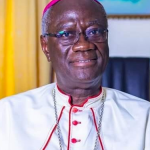Analysts at GCB Capital who follow the market are upbeat about the cedi’s chances for the rest of the year and predict that the Ghanaian currency will stabilize by the middle of 2024.
Since February 2024, the cedi has been depreciating rapidly, mostly as a result of ongoing pressure from corporate forex demand.
Important Ghanaian economic indicators show that the macroeconomic situation is becoming better despite this depreciation.
By the end of 2024, the nation’s GDP growth is predicted to have somewhat improved from 2.9% in 2023 to 3.3%, while average inflation is predicted to have decreased from 38% in 2023 to 18% in 2024.

The Central Bank sold US$13 million in the spot market earlier this week and moreover offered $20 million to Bulk Oil Distribution Companies (BDCs) in the 51st auction to bolster the local currency.Even so, the cedi depreciated against the major trading currencies in the first quarter of 2024, but at far slower rates than in the past.The head researcher at GCB Capital, Courage Boti, thinks that the latest events provide some hope for the stability of the cedi in the foreseeable future.He ascribes this confidence to the macroeconomic environment’s improvement and the possibility of more absorption of foreign exchange demand from the Bank of Ghana’s auctions.“In my engagement with the traders, what they see is a pile-up of demands from the corporate sector, largely the BDCs, who are just about more or less 20% of the IFAX needs from the BDCs auction that the Bank of Ghana conducts every fortnight. So, they source the rest from the open markets and also from the other corporate sectors. You could immediately think about things like the seasonal trends that we know from before; dividends repatriation in the second quarter.”













